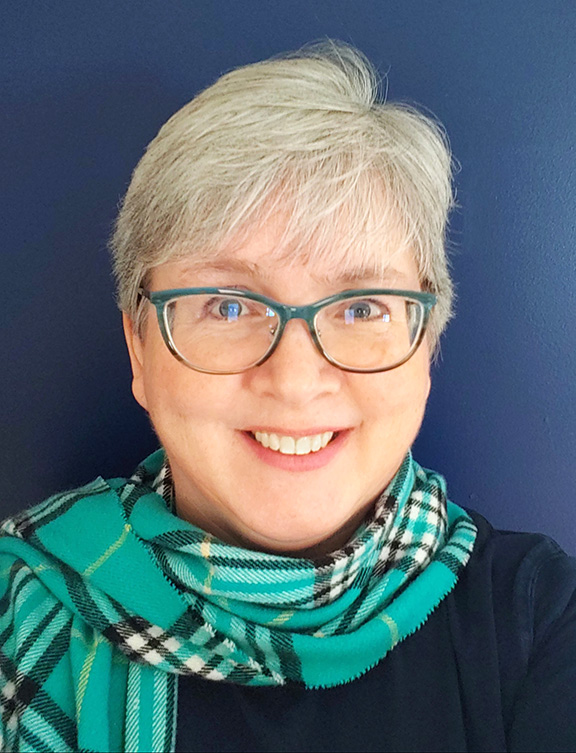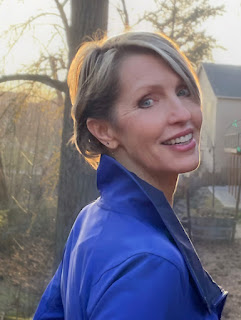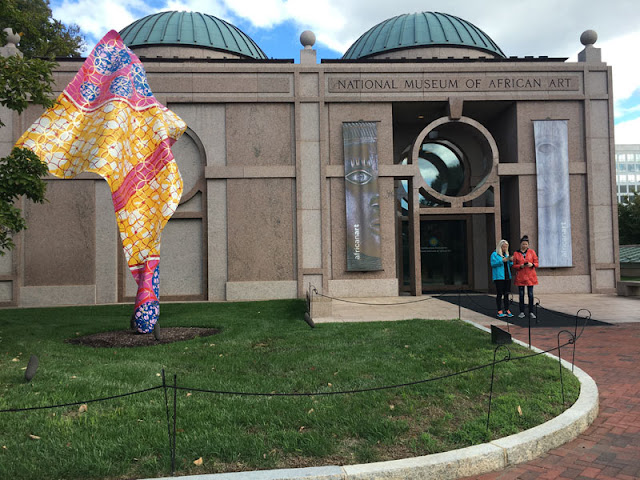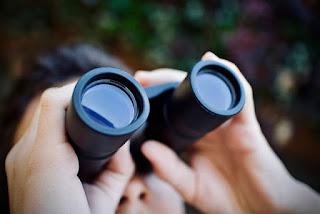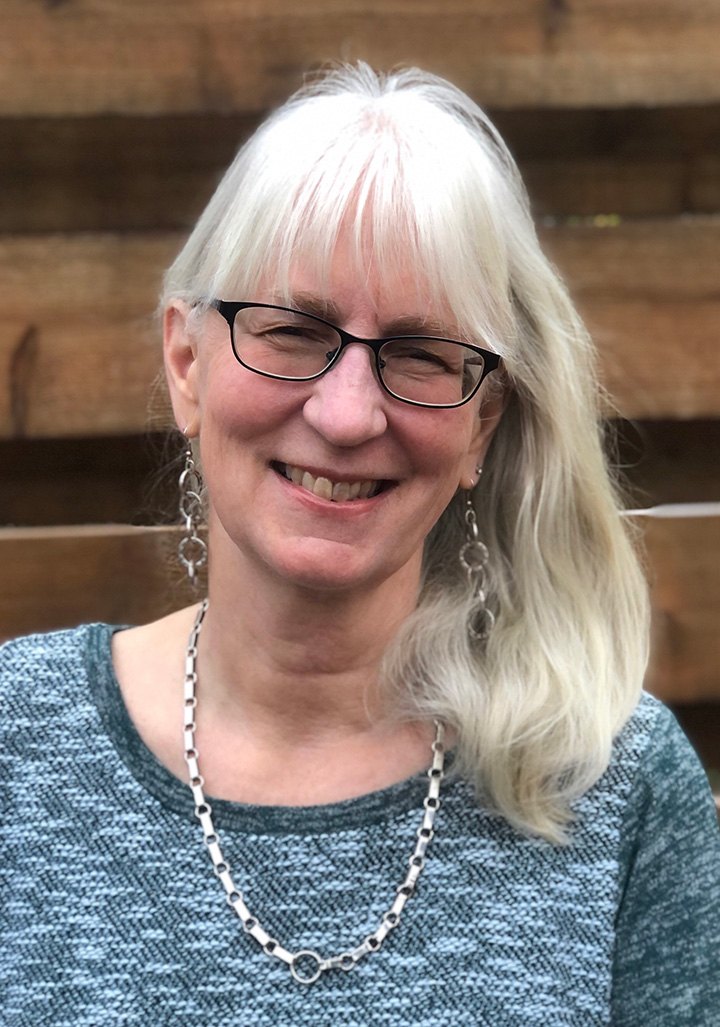Common Word-Choice Errors
Look for the Positive News Where You Can Find It
It started with getting a not-so-great feedback on a story. I am deep into the revision process at this point, so instead of ruminating about it for long, I just accepted their feelings and moved on. Honestly, I knew that it was entirely possible they just didn't like it. That it had less to do with my writing but more with it not being the kind of story they enjoy. And I was okay with that. My stories aren't going to be liked by everyone. At the same time, I'll try to take what I can from their advice and apply it.
A few days later, I received a rejection letter for another story of mine. Well, this kind of rejection was one I was pleased about. I was a quarter-finalist in Ruminate Magazine's 2022 Fiction Contest. So while my story was rejected, even to get that far is pretty cool. It also left me with a feeling that likely that particular story may just see publication soon.
Looking for the positives isn't always that easy. Even in the midst of these moments, it would have been easy to feel really negative about both moments. The funny thing is at the moment I'm working on an article that talks about dealing with bad days. One of the tips I've discovered is shifting your perspective. As hard as it is, sometimes that shift can lift the weight of a potentially bad moment and give you a positive view of things. It's not always possible for me but I'm working on it.
Interview with Michelle Jayne: Fall 2021 Flash Fiction Contest Runner Up
The Landline Life and Uses of Phones in Literature
 |
| Photo by Pexels |
April 25 is National Telephone Day. As a child of the late 1980s and early 1990s, oh how I loved the telephone. I was talking to someone the other day about how many phone numbers I had memorized when I was a teenager, and now I can barely remember my own kids’ phone numbers because they are automatically programmed into my phone.
INTERVIEW WITH Bethany Jarmul, FIRST PLACE WINNER OF Q2 2022 creative Nonfiction Essay CONTEST
interview by Marcia Peterson
WOW: Congratulations on winning first place in our Q2 2022 Creative Nonfiction essay competition, and placing as a runner up with another piece as well! What prompted you to enter the contest?
Bethany: Thank you! I've been a fan of WOW for more than a year now. I was just starting to get serious about pursuing creative writing when I took a course through WOW in February of 2021. I have kept up with the social media, blog, contests, and courses ever since. I'd been dreaming of seeing my photo up there on the website as a contest winner, and decided I was finally ready to submit.
WOW: I loved both of your entries, "The Pause Button" and "Grocery List for My Parents' Visit." Can you tell us about the inspiration for these essays? Did you have the idea of the pause button as a symbolic image to start, or did that come as you began to write? And for the second piece, did you begin with the idea of using the list within an essay format?
Bethany: Both these essays began in the course that I took through WOW—Chelsey Clammer's "Not What But How." I continued to work on the essays after the class ended, then they sat on my laptop for a while while I was struggling through a difficult pregnancy.
For "The Pause Button," the events in that essay took place on Valentine's Day of 2021, which was during when I was taking Chelsey's class. When I found out I was pregnant and my husband came home and gave me flowers, I thought "this could be a movie!" But I didn't feel like a character in a romantic movie should feel. I felt conflicted, confused. It seemed like perfect material for an essay. The idea of ending with the pause button came to me as I was writing the essay and exploring the movie idea.
"The Pause Button" was also a craft experiment for me. I pulled in some research and examples of change from nature with the chameleon and the butterfly. The essay also switches from first-person narrative to second-person after the break, which is something that I was newly exploring. The second-person narrative allowed me, as the writer, to distance myself from the story while also helping the reader feel the immediacy of the moment and imagine themselves experiencing what the narrator was experiencing.
For "Grocery List for My Parents' Visit," it was my first time writing a "hermit crab essay," which is an essay that takes on the form of something else, in this case—a grocery list. Writing in this unique form freed me to write about difficult things that I would have had a hard time writing about in a straightforward chronological essay. Plus, it's just fun to play around with form and structure. I've found that using a specific structure frees me from the overwhelming feeling of the endless possibilities, the blank page.
WOW: As a busy mom, how do you find time to write? What works best for you?
Bethany: Yes, I have a toddler and an infant and work part-time from home. I don't have a quiet, clean place or a lot of time in which to write. But I decided to write anyway. I use whatever snippets of time I have, sometimes writing with a toddler on my lap or while nursing my infant. I watch a lot less TV and spend less time on social media, so that I can write and read more.
When I gave up my full-time job to stay home with my kids, at first, I felt like I was never going to accomplish anything else other than changing diapers. Eventually, I realized that for the first time in my adult life, my mind was free. I was busy and often physically exhausted, but my brain power could be harnessed toward writing in a way that wasn't possible when I was working full-time and mentally spent.
The other barrier to my writing was my mental health—anxiety and depression, especially during both of my pregnancies. I'm thankful for therapy, medication, and lots of prayers that have helped me get to a place where I feel confident enough to write again.
WOW: We're glad you were able to find you way back to writing! Are you working on any writing projects right now? What’s next for you?
Bethany: I'm going to continue writing and publishing essays, some poems, and maybe a short story or two. I enjoy all writing, but creative nonfiction is definitely my favorite. I'd like to publish a book—a collection of essays or a memoir-in-essays. I'd say that's my five-year goal. Anyone interested in keeping up with me and my work can follow me on Twitter: @BethanyJarmul.
WOW: Thanks so much for chatting with us today, Bethany. Before you go, do you have any tips for our readers who may be thinking about entering writing contests?
Bethany: Do it! But read some books and take some classes first. This was my second time entering the WOW essay contest. The first time, my essay didn't even make it through the first round. I was a solid writer, but I didn't understand the essay form yet. I hadn't done my homework, and it showed.
What it takes to improve your writing—read, write, take classes, and find community. Joining a writing group and getting peer feedback on your work is so important. If you can't find one to join, create one.
If you are looking for some craft books on writing essays, here's some that I recommend:
You Can't Make This Stuff Up
Tell it Slant
Use Your Words: A Writing Guide for Mothers
The Rose Metal Press Field Guide to Writing Flash Nonfiction
Getting to the Truth: The Craft and Practice of Creative Nonfiction
For classes, I recommend WOW's writing classes, of course, also Creative Nonfiction and Writing Workshops.
"A professional writer is an amateur who didn't quit.”– Richard Bach
Book Clubs
I recently was the featured author at a book club meeting. This was the third book club (that I know of) that read Greenwood Gone: Henry's Story, my novel. The other two were quite different. One was a church group, and my publisher, Margo Dill was a member; all the readers were white. The other was an all-Black group, and one of my friends, Astra, belonged to it.
The group that just met this week involved family... or at least in-laws. We met at my son's mother-in-law's home for a light dinner followed by da da dum: the book talk.
I learned some tidbits from each group, and I thought I'd share how I was schooled by the three groups.
- Be prepared to be surprised. During Margo's group meeting, one of the women wondered what had happened to Olivia's doll. It was prominently featured, and then was never mentioned again. Clearly, I'd dropped the ball. I decided to thread the needle and tie up that loose end, because it was a completely valid point. (I still have not sent you that part to add. Sorry, Margo.) During Astra's group meeting, one of the women said she had wished that the married couple who were the "saviors" of the story were Black instead of White. She pointed out that too often, Blacks are portrayed as being unable to save themselves without some outside (White) intervention. I had to let them know that the couple was a real-life couple, and they were White--but I understood.
- Be prepared to handle some disagreement. Up front, I was told that some of the women that came to this week's meeting were conservative (they whispered that last word). I figured this was the case. During the meeting, there was some discussion that strayed from the book and mired in some political and racial issues. Everything was civil, but it was obvious that not everyone was on the same page when it came to politics. (Same page... book club. Do you see what I did there?)
- Be prepared to take pictures--and be prepared to be insistent about it. I brought a camera, planning on taking a photo of the whole group at some point--hopefully with everybody holding up their copies of Greenwood Gone: Henry's Story. (I know, I know. Shameless self-promotion.) A couple of the women thought a picture taken with a phone (and a timer) would be better. I said I'd like to take a picture as well, but that idea was shot down... and now, I still haven't gotten that text with the photo.
- Be prepared. Mentally, I went over some of the details I wanted to share in the week before the book club met. The head of the group very graciously let me know how their club meetings flowed. I discovered they expected to ask me questions after I had done some talking. Fortunately, the leader had some wonderful questions that kept me yammering for a while. (Why did I choose Henry as the main character? Why not a girl?... What made me choose this historical event to write about?... How long did it take to write the book, and what were some of the obstacles?)
Friday Speak Out!: The Book Marketing Pitch
YOU are the secret to a successful Pitch
Think of a pitch. Visualize it. A pitcher stands on a baseball mound and throws a ball to a batter. Instead of real time, let’s slow things down a bit and imagine the pitch resuming in slow motion. The pitcher releases the pitch and it slowly reaches the batter. The batter takes a swing and his bat either hits it or misses it.
One of the hardest and most time-consuming parts of book marketing is pitching to media contacts. First, you have to take the time to identify media contacts. Then you have to come up with a pitch to send to them. Then you have to send it, follow-up with it and hopefully provide what the media contact wants for their review, mention or interview.
What is a pitch in book marketing? One of the ways we sell books is to “suggest” or “pitch” the book, the author, or the author’s message to different media contacts to review the book in their media outlet, to mention the book in their media outlet or to interview the author in their media outlet.
What is a media contact? A “media contact” is an entity or person at that entity. Media entities include tv, radio, newspaper, magazine, blog, and podcast, as well as book industry reviewers and long lead reviewers. A book marketer (You!) creates a media contact list and then you pitch to your list.
How to get started on a pitch to media contacts
First: Keep your goal in mind. When you pitch to a “media contact” you are hoping for a book review, an interview about your topic, or a mention of your book. Repeat after me: review, interview or mention…. review, interview, or mention. Those three things are always your main goal.
Second: Mass emailing equals mass rejection: I know it is tempting to write a generic pitch and to send it through Mail Chimp or Constant Contact or to a string of every email in your contact list but this is bad form for a couple of reasons. First, putting media contacts in a constant contact database is a no-no. You technically have to have the permission of the contact to add it to your constant contact database. Second, media contacts can spot a blanket pitch from a mile away and will most certainly ignore it.
Third: You will be pitching your book for years to come. Take a minute and a breather. I know it is overwhelming. I can remember panicking at the sight of the grocery store magazine rack at every checkout counter when marketing my first book. Every magazine was a potential media contact…how was I going to pitch to them all? The answer, one media contact at a time.
Tips to pitch to your media contact
One: SINCERITY - take the time to read the media contact’s website or work so you get to know them a bit. Sincerity ALWAYS wins the day. Every successful hit I have ever had has included a sincere and well, thought-out pitch. Quality over quantity is the key when pitching to a media contact.
Two: Write a pitch that makes it easy for the media contact to say yes.
Include all the information that the media contact will need to do what they need to do. If you are pitching via email, include a call for action – “let me know where I can send a copy of my book and media kit for your review, mention, or interview,” for example.
If pitching by mail, include a copy of the book (or galley) with your press release, author bio, and interview q&a. Include a well written cover letter with your call to action. Include why the media outlet’s audience will love you or your book, why they need it or will be entertained by it. Include a few bullet-pointed reasons! Always include a call to action… “Please consider for -review, interview, or mention of the book for your magazine.”
Three: Gently follow-up with the media contact. For example, you can start the follow-up letter or email with the words: In case you missed it…. I have included information about so and so…
Finally, don’t give up. If you come up with a different way to pitch to the same outlet down the road, a different spin or a new story, try it again a few months later.
You are the secret to a successful pitching campaign for your book. Take the time to create meaningful media contact lists and creative pitches and you will be on your way to getting your book seen and sold!
* * *
Claudine Wolk is an author, podcast host, and radio host. Follow her substack newsletter Get Your Book Seen and Sold or visit ClaudineWolk.com. Claudine lives with her husband, Joe, in Bucks County, PA and is working on her next book.
~~~~~~~~~~~~~~~~~~~~~~~~~~~~~~~~~~~~~~~~~~~~
Would you like to participate in Friday "Speak Out!"? Email your short posts (under 500 words) about women and writing to: marcia[at]wow-womenonwriting[dot]com for consideration. We look forward to hearing from you!
I Get By with a Little Help from the Pros
“Here, let me show you where you can check your oil.” And the pro got in my car and pointed to a black pencil-type rod and blew my mind.
Productive Procrastination
 |
| This post made me think about how I work. |
Monday, I needed to dive into my rewrite. After all, I have a teen nonfiction book due Friday. It is 8 chapters, 15,000 words, and too long already. I need to focus the text, work in some more examples and descriptions, and cut the excess. One chapter is 700 words too long. Others include notes to myself like “Transition!” or “Brilliant conclusion goes here.”
I spent the day prodding myself. “Must rewrite . . . must rewrite . . . must . . .”
Interview with Lori Lyn Greenstone, Runner Up in the WOW! Fall 2021 Flash Fiction Contest
Lori Lyn Greenstone/Ekphrastic Mama is a writer who prefers purple gel pens and builds life-size giraffes from driftwood, then blogs about how art teaches us to trust our creative process. You can see this and more of her writing and art history at Ekphrastic Mama.
She Rested
As our time together comes to an end, let me ask you:
What could you say to yourself that would help you rest when you become weary?
What are some ways resting has helped you personally and professionally?
Since I never leave the farm - tell me about something exciting happening in your life! Do you celebrate Easter? What does Easter or Springtime look like for you?
Share your answers as a comment on this post!
Hugs,
~Crystal
About Today's Author:
Crystal is a foodie, farmer, and friend! She has 6 children and lots of special young people who call her "mom" even if she isn't 'their' mom! She starts each day sipping coffee and milking cows with the love of her life and occasionally ends the day with a glass of wine. Crystal is raising kids and cattle while juggling cleaning jobs, bartending shifts, music gigs, her job as office manger and she escapes reality a few hours each week riding horses and reading books (not simultaneously)! And who knows, she may start blogging again sometime soon: http://bringonlemons.blogspot.com/
In the meantime, you can find her posting pics of food, cattle, and more on Instagram and Facebook!
Questions on Chapter Length, Page Counts, and Rhetorical Questions
How to Write a Travel Story: By Staying Home
You don’t need to jet-set around the world to come up with a good travel story—as nice as that may be. Remember that old adage about writing what you know?
Maybe you live in an under-the-radar small town, a hidden gem of Khmer culture, a wilderness/camping/trail haven, or home to the best small museum/cooking school/monument you’ve never heard of. The possibilities are endless! It’s just a matter of viewing a place that you know inside-out through visitors’ eyes. What would a visitor want to know?
Honestly, as a travel writer who covers destinations around the world, I often find myself writing about my hometown—Washington DC. By virtue of living here, going about my daily life, seeing it through the different seasons, I have insider knowledge. I read local newspapers and magazines, watch the local news, talk to friends. I eat at local restaurants, run and bike on local trails, see shows at local theaters. I’m constantly running around town, visiting a new hotel or museum or restaurant. I’ve watched this city grow from a provincial southern town to a veritable global city. In short, I’m an expert.
In addition, I have developed relationships with local tourism representatives, who invite me to museum openings and hotel tours and put me on press release lists that keep me in-the-know on upcoming events. I always know when a new museum has been approved or when a distillery opening has been delayed. In addition, their website, Washington.org, is a font of information, including a special “press” section that offers story inspiration, resources, and the latest industry news. Most cities and towns have tourism staffs that are just as helpful.
So, what I encourage you to do, especially if you’re just breaking into travel writing, is take a look around you—and write what you know.
Here are some prompts to get you started:
1. Small museums: Does a local museum have any intriguing artifacts (check out Old Rip in Eastland, Texas)? Is there a collection of sites related to a famous (even not-so-famous) person?
2. A local food specialty: Everyone may eat cheese curds (for example) where you come from, but most of the country has never heard of them. What’s their story? What are the best places to experience them?
3. Road trips: Americans love to drive. Is there a scenic or interesting drive in or around your town? Write about sites, restaurants, hotels, and parks to stop along the way, to create an idyllic escape. Or make it a themed drive—the best places to sample cheese curds in the greater Madison area; or Long Island in winter; or “George Washington Slept Here.”
4. Weekend getaways: People also love weekend getaways. Is there a weekend getaway from your town—or could your town be a weekend getaway? Provide restaurant, hotel, and activity suggestions.
5. Freebies: What are the free things to do, whether it’s summer concerts, gardens, museums, festivals, etc.?
Writing about home in the guise of travel writing doesn’t preclude you from hopping onto a plane to go kayaking in Hawaii or wat-hopping in Thailand. But it’s definitely a place to get started. Remember, you’re the on-the-ground expert. That goes a long way in writing an insightful travel story.
Barbara is also a WOW! Women on Writing instructor. Check out her upcoming webinar, Travel Writing 101. More information about our classes can be found on our classroom page.
Would you like to participate in Friday "Speak Out!"? Email your short posts (under 500 words) about women and writing to: marcia[at]wow-womenonwriting[dot]com for consideration. We look forward to hearing from you!
~~~~~~~~~~~~~~~~~~~~~~~~~~~~~~~~~~~~~~~~~~~~
Thriller Writing Tips Gleaned from a Netflix Parody
10 Interesting Words from Other Languages
- Petrichor: the wonderful smell in the air after it’s been raining
- Komorebi: sunlight filtering through trees
- Waldeinsamkeit: The feeling of solitude and connectedness to nature when being alone in the woods.
- Tsundoku: the act of buying a book and leaving it unread, often piled with other unread books
- Kaizen: a method for transforming habits incrementally, one step at a time, in order to continuously improve
- Meraki: to do something with soul, creativity, or love; when you leave a piece of yourself in your work
- Irusu: pretending to be out when someone knocks at your door
- Yaourt: To sing along to a song even though you don’t know the lyrics. Instead, you use nonsensical noises that vaguely resemble the lyrics of a song.
- Shemomedjam: to eat something because it’s so yummy and delicious, even though you’re not hungry
- Meriggiare: to rest or relax at midday, usually in a shady spot on a sunny day
- Ubuntu: The act of being kind to others because of one’s common humanity.
Are you a word lover too? Share one of your favorites in the comments below.
INTERVIEW WITH Kathleen Dunn, FALL 2021 FLASH FICTION CONTEST runner up
interview by Marcia Peterson
WOW: Congratulations on your top ten win in our Fall 2021 Flash Fiction competition! What prompted you to enter the contest?
Kathleen: I had written "Parasite" before I even knew about the competition. I was so excited about finishing the story that I immediately started searching for open contests. WOW's site spoke to me from the get-go-- I went to an all-women's college, so I love the idea of a site dedicated to women writers.
WOW: Can you tell us what encouraged the idea behind your story, “Parasite?”
Kathleen: I wrote the first draft of this story around Halloween. Movies like Rosemary's Baby, Alien, and The Omen were being advertised for the season, so I had those ideas circulating in my head. I also felt inspired by "The Yellow Wallpaper" by Charlotte Perkins Gilman. Like the main character from Gilman's story, my character is a woman who's motherhood brings her to a dangerous place (both physically and mentally).
Moreover, I liked the idea of taking something traditionally considered the most feminine, natural, and 'womanly' thing--giving birth--and subverting it into something sinister. It seemed like WOW, a forum specifically created for women writers, was the best place to share a story like "Parasite." Who better to judge it than women themselves?
WOW: What do you enjoy about flash fiction writing versus the other kinds of writing that you do?
Kathleen: Flash fiction makes you think on your feet. How can I get a message across in so few words? What adjectives to use? How can I keep it short, sweet, and to the point--and still make it fun?
It's a thrilling challenge for any writer, I think.
WOW: You finished your first novel (during lockdown, wow!). What did it take to accomplish that big goal? What did you learn along the way?
Kathleen: Persistence is everything. Making time each day to sit down and write was the only reason I finished my first draft. I also think that during lockdown, when everything was so frightening and unsure, having a world to escape into was a God-send.
I learned quite a few things along the way. Namely, that writing long-fiction is a long process, and expecting perfection from early drafts is not only impossible, but also counterproductive. You've gotta chip away at it bit by bit, and make sure that you keep all those fun critical voices in your head at bay. The work will get done if you keep at it, but pace yourself.
WOW: Thanks so much for chatting with us today, Kathleen. Before you go, do you have a favorite writing tip or piece of advice you can share?
Kathleen: To quote Winston Bishop from New Girl:
****
For more information about our quarterly Flash Fiction and Creative Nonfiction Essay contests, visit our contest page here.
Perspective on Writing is a Fickle Thing
You see, I also rant into a flash fiction piece of mine that I had long since written off as being unworthy of publication. When I read it over the weekend, I thought to myself, "Wow, this really isn't that bad." The same can be said of a short story I wrote several years ago, also that fell in the category of "not really that great." After some polishing, I am now re-submitting it for various lit mags.
I'm a huge proponent of distance from writing and getting a fresh perspective. It can reveal things about a story that you really didn't see before. It can cut both ways too. You may realize something wasn't as terrible as you first thought, and you may discover something wasn't as great as you remembered.
If you have finished a story, whether it feels "blech" or amazing, give yourself some distance. It's an important part of the writing process where you quietly extricate yourself as being the writer of the piece and become the reader instead. I've discovered this can be important if I'm stuck on a piece too. By removing myself with distance, even letting years pass at times, I return to it with a fresh perspective. I can see something in it that I never did before.
Interview with Julie Lockhart Runner Up in the 2022 Q1 Creative Non-Fiction Essay Contest with "Nature's Sanity"
Congratulations to Julie Lockhart and Nature's Sanity and all the winners of our 2022 Quarter 1 Creative Non-Fiction Essay Contest!



